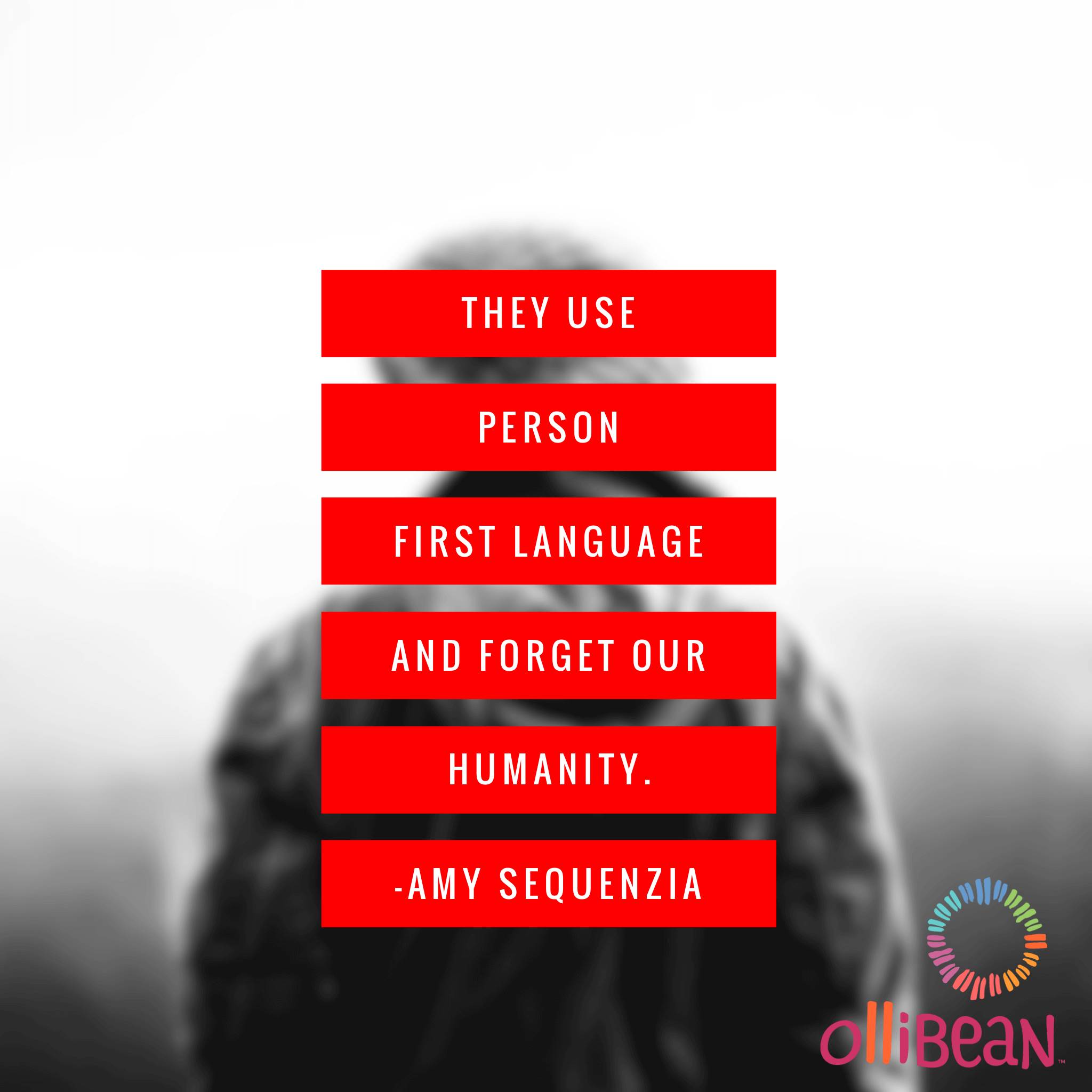
This post is about Person First Language and autism.
Another title for this post could be: “Disability Language, and “Gymnastics”.
Some might find part of it funny, but I am not kidding.
I wrote about why I believe Person First Language (PFL) is ableist, and how individual choices should be respected – the “individual” being the disabled person.
Person First Language and Autism
Most independent-thinking Autistic adults prefer Identity First Language (IFL). Some use Person First Language and their choice should be respected. This post is directed to non-autistics, to the media, and to autism advocacy organizations that are not run by Autistics.
Most of such organizations use Person First Language, not even bothering to use both languages. If they really wanted to show that they respect us, and want to help advocating for our rights, they would start by using – at least – both languages. We, Autistics, are proud of our identity. Those organizations use our neurology in their names, ads and fundraising appeals, and then erase our voices.
The media use Person First Language, even though they have a stylebook, supposedly to ensure respectful writing. But disabled people are not respected by the media. Some editors even “demand” that we use Person First Language, when writing about ourselves, if we are to be quoted. Others simply change our words without consulting us.
Person First Language is not about “seeing a person before the diagnosis”
I have been “corrected” several times by people (parents of young Autistic children and random people I meet) saying to me:
“You are SO MUCH MORE than autism!”
“I see you – THE PERSON – first, then “the autism”
Those are the same types of comments I see from Person First Language proponents everywhere.
So, lets see:
Do you REALLY see a person first, before “the autism”?
So, rocking, flapping and spinning don’t bother you, right?
You don’t even notice when an Autistic person is scripting, being echolalic, or typing to communicate, right?
Note: there is nothing wrong with being Autistic and freely displaying Autistic features. My point is not to say that something should be done about being openly Autistic, but to show that Person First Language proponents don’t’ practice what they say.
You say we are “so much more than autism”, so why don’t organizations, parents, the media and “specialists” respect us – the “much more” part of us they claim to see – when we try to be heard?
Let me say this:
When ABA proponents tell parents that only several hours a day of relentless compliance training can “make us fit for society”, they are not seeing a person. They are seeing a problem, a defect. Yet they insist on Person First Language.
When we are abused, and murdered, the perpetrators don’t think we are “much more than autism”. They use Person First Language and forget our humanity.
Or maybe they are trying to beat, stab, suffocate or shoot “the autism” out of us.
When the media blame us for our own murders, by pointing out how “tragic” and “pitiful” our lives are, they use Person First Language to point out how non-persons we are. This is dehumanization.
When the media and some “experts” speculate that a mass murderer might be Autistic, they use Person First Language to say autism makes people evil. To them, that’s all we are.
Person First Language is not about “seeing a person before the diagnosis”, or about “seeing much more than the diagnosis”.
Person First Language is about putting as much distance between the person and “the autism”. It is the opposite of acceptance.
And this is evidenced by the gymnastics organizations, some parents, “professionals”, and the media engage in when talking about Autistics.
It is like a contest to see how many ways one can talk about Autistics without using the word “Autistic”.
This is how Person First Language proponents refer to us:
“Person with autism”
“Person has autism”
“Person on the autism spectrum”
“Person with a diagnosis of autism spectrum disorder”
Each time, they come up with a longer description that starts with “person” and ends with “autism”.
Simply Say “Autistic”
It would be much more inclusive, and respectful of our voices, to simply say “Autistic”. It is simple and direct. It does not waste words, it is easily understood. More importantly, it is the most accurate description of who we are.
If Person First Language users REALLY want to continue to use Person First Language because they insist it is about their belief that we are people before we are Autistic (which is pretty absurd that one should need to point that out), or because “we are much more than our diagnosis” (they still need to show the evidence of their claimed belief, though), at least put more distance between us and the diagnosis.
If they want us to believe their Person First Language stance is not about silencing us, or about being ashamed of us, or believing that autism is something that needs fixing, this is how they should refer to us. You know, so everyone can see the person WAY before “the autism”.
“Person who experiences life as someone who is living on the spectrum that has people who have, or experience life with a diagnosis of being on the spectrum of the disorder of autism”
Or maybe they can come up with more words to separate us from our identity even more.
If they insist on the short-cut gymnastics, or if they think my suggestion is a joke, their Person First Language conviction is not so convincing.

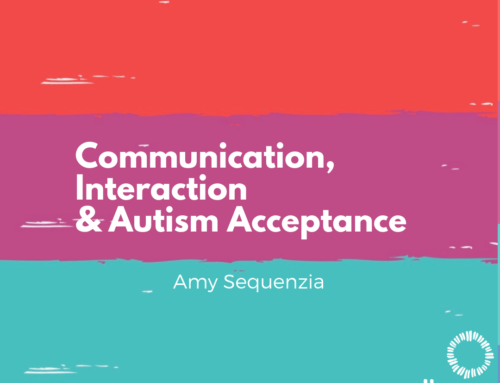
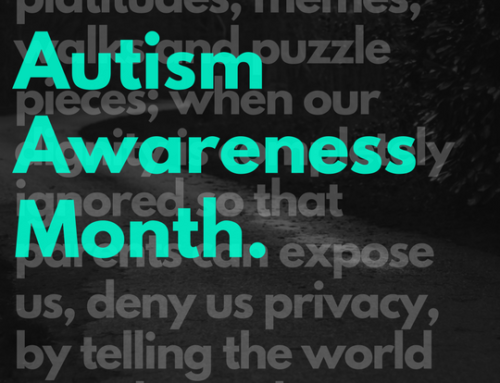
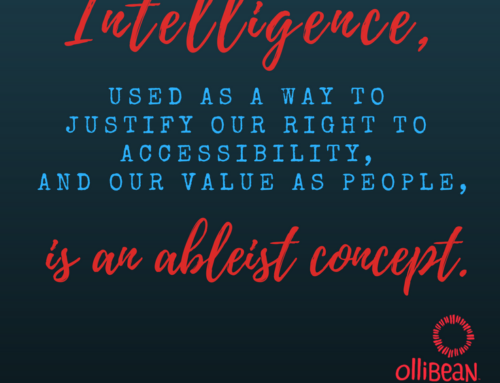
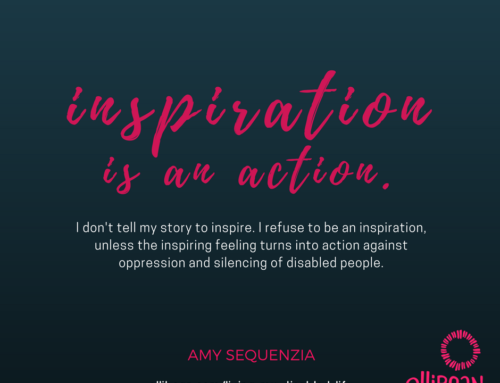
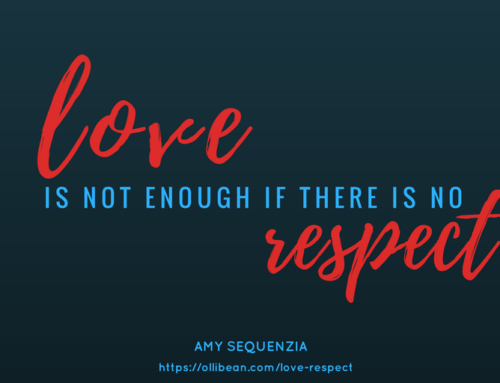
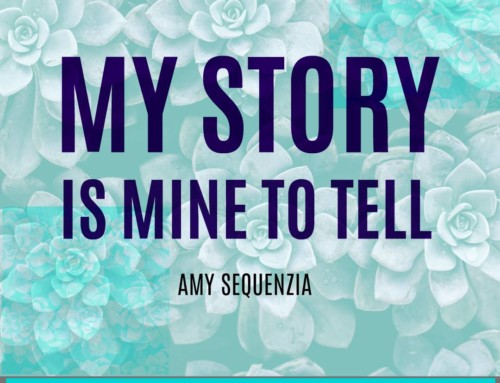
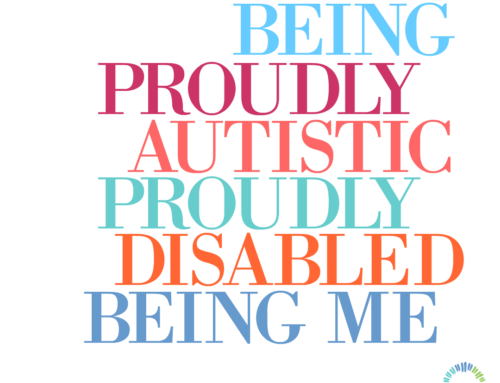
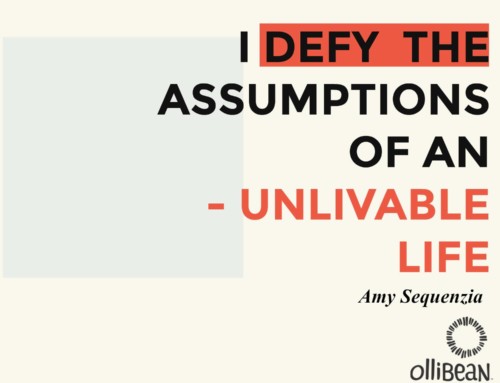
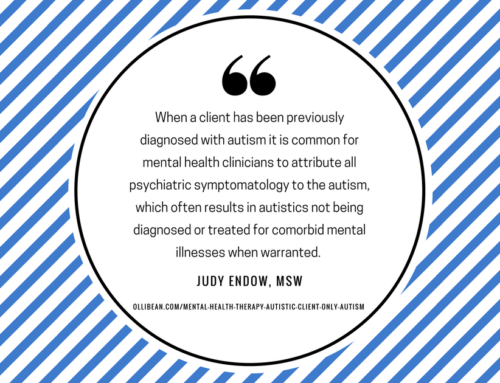
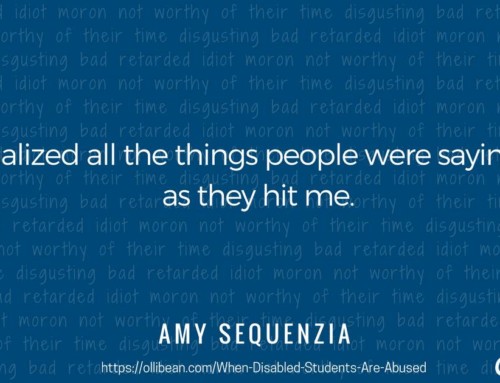

Amy,
I struggle with this as a teacher of students living with challenges. We work hard in our community to advocate and instruct and inform our typical teachers and students about seeing people as individuals. This includes understanding not only unique behaviours but how to meet the needs of the specific person. The people first language helps those who are ignorant take that first step towards, not separating or “walking around” their students and peers. Your arguement requires an understanding that we as a society do not have as yet. One day we will, but for now a dialogue about including students is aided by people first language.